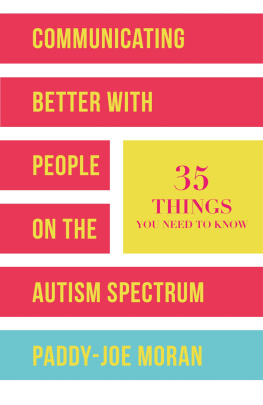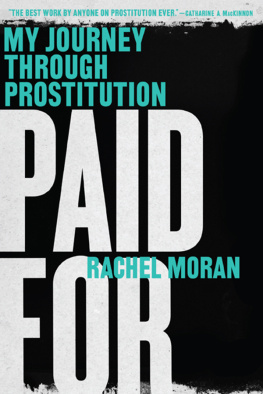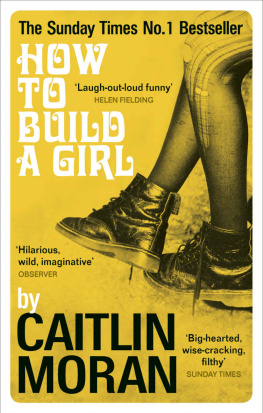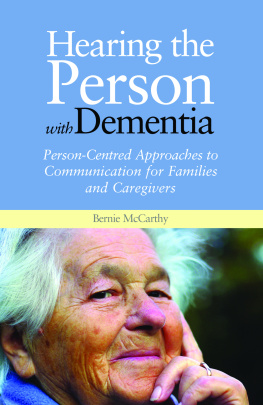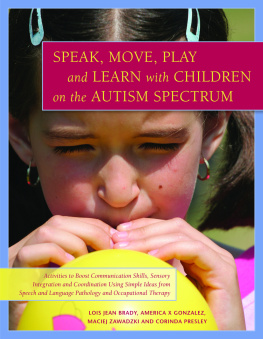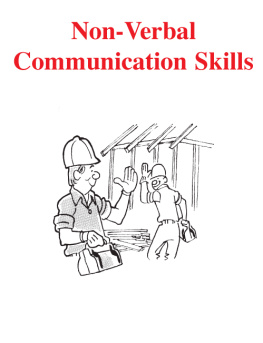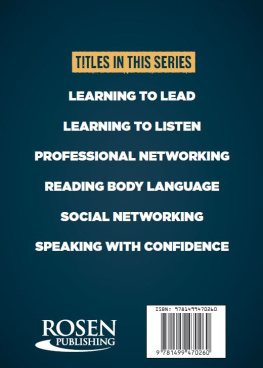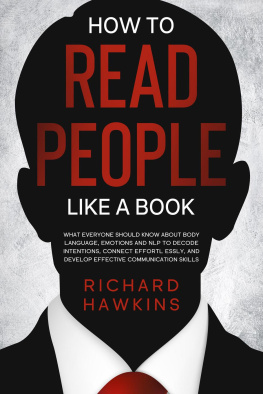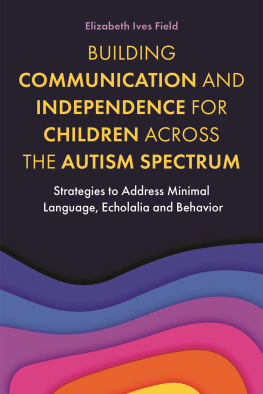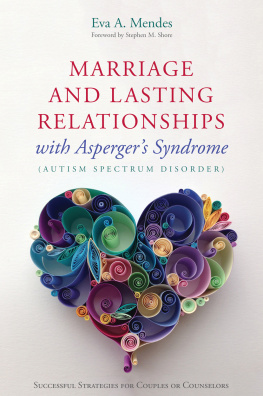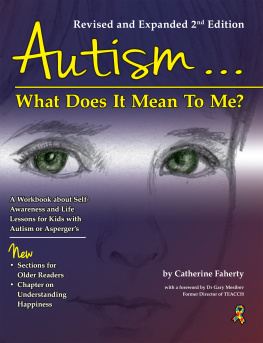
COMMUNICATING
BETTER WITH
PEOPLE ON THE
AUTISM SPECTRUM
THINGS
YOU NEED TO KNOW
PADDY-JOE MORAN

Jessica Kingsley Publishers
London and Philadelphia
First published in 2016
by Jessica Kingsley Publishers
73 Collier Street
London N1 9BE, UK
and
400 Market Street, Suite 400
Philadelphia, PA 19106, USA
www.jkp.com
Copyright Paddy-Joe Moran 2016
All rights reserved. No part of this publication may be reproduced in any material form (including photocopying, storing in any medium by electronic means or transmitting) without the written permission of the copyright owner except in accordance with the provisions of the law or under terms of a licence issued in the UK by the Copyright Licensing Agency Ltd. www.cla.co.uk or in overseas territories by the relevant reproduction rights organisation, for details see www.ifrro.org. Applications for the copyright owners written permission to reproduce any part of this publication should be addressed to the publisher.
Warning: The doing of an unauthorised act in relation to a copyright work may result in both a civil claim for damages and criminal prosecution.
Library of Congress Cataloging in Publication Data
Title: Communicating better with people on the autism spectrum : 35 things
you need to know / Paddy-Joe Moran.
Description: London ; Philadelphia : Jessica Kingsley Publishers, 2016.
Identifiers: LCCN 2016010283 | ISBN 9781849057080 (alk. paper)
Subjects: LCSH: Autism. | Autistic people--Language. | Autistic
people--Rehabilitation.
Classification: LCC RC553.A88 M6772 2016 | DDC 616.85/882--dc23 LC record available at https://urldefense.proofpoint.com/v2/url?u=https-3A__lccn.loc.gov_2016010283&d=BQIFAg&c=euGZstcaTDllvimEN8b7jXrwqOf-v5A_CdpgnVfiiMM&r=VCKr2NBFNTs4O_kp07esGY2J-doQEb4zTq5sCaeXa-I&m=U104C_gBEm0YoEPkH-FLcbrUlm3ibNK_AjZlkWmI1-E&s=hcrcCLmpGFPxw8fYscWqL1R07RvRgUWEDEbRVrPDwLE&e=
British Library Cataloguing in Publication Data
A CIP catalogue record for this book is available from the British Library
ISBN 978 1 84905 708 0
eISBN 978 1 78450 234 8
In loving memory of my Grandma Winifred McDowell
March 1934 to May 2015
CONTENTS
INTRODUCTION
Over the years I have come into contact with numerous health and social care professionals, and I have to say my experiences with them have been mixed. As a young man with autism I can look back at some of the interactions I had with professionals when I was a child, and see that they have helped me tremendously. I was eight when I was first diagnosed with autism, and the years after that were packed full of meetings and assessments. It was a case of having to go here, there and everywhere to try and get the services I needed. There were huge waiting lists, and hours upon hours of phone calls even to get to a meeting. We would meet with people to talk about one issue, who would then recommend we talk to someone else about another issue, and so on. This is something that most people with autism and their families have to put up with especially in the first few years after a diagnosis. I am sure it will be a familiar picture to a lot of families. Some of the issues I was dealing with at that time were sadly beyond what my family and I could deal with on our own. I stress this point so early on as I believe I have to make clear at the start of this book that my aim is not to insult or imply any lack of professionalism in my readers.
As I have said, when I look back to being a young child and being helped along by professionals working in tandem with my family, I know that what was done for me played a big part in me even being able to write a book like this. I was at a stage where I found it all but impossible to sleep in my own bed. I would have outbursts and meltdowns at the change from weekdays to weekend, for example, and I would feel physically ill every day with stress. Daily outbursts and lack of sleep were taking a massive toll on me. I found it harder and harder to get by in day-to-day life. As a family we managed to tackle a lot of the issues ourselves, but still when we got to meet professionals, and found out just how helpful they could be, it was a huge relief to us all. My family played a huge part in helping me to deal with these issues, but I do also have to give credit where credit is due to the professionals who worked with me.
But it has been a mixed set of interactions. If I think back over the past 12 months I can pick out three times I have had to deal with an autism professional who just did not get it. Now I am not saying that they were vindictive, or anything like that they just did not seem to understand the basics. When I look at the professionals I have dealt with this past year I cannot credit them with anything other than increasing my stress levels. I have had an appointment that overran by nearly two hours, I have seen professionals who did not understand that autism is not a mental health issue, and I have had three appointments that were needlessly long and gruelling. One appointment was aimed at seeing what help I would need for university. I went into it quite happy, and more than willing to do what needed to be done to get the help I required. When I came out I was so stressed I could not calm down for days. Now in all fairness I got a lot of help during my time at university as a result of that meeting, but to tell the truth, when I was in there, and in the days and even weeks after, it did not feel worth it. In fact, I almost got to the point of saying I did not want to go to university after all if that was any indication of what life would be like. In the end, I did go, and the stress of the meeting faded. But even looking back now I can see how poorly that meeting, and other meetings that followed, were set up.
As much as it might sound like it, this book is not being written simply for me to vent my feelings. The main aim I have in writing it is to try and help professionals get to grips with some basic, and easy to implement tips for dealing with us autistic people. Because I do understand that sometimes for an outsider looking in, no matter what qualifications you may have, we can be a bit hard to understand. The tips in this book are not just things I have thought up that would help me they are things a lot of autistic people talk about. These are concerns most people with autism will have, but might not be able to communicate. So I hope that this book proves useful to you, and can help you in your interactions with autistic people in the future.
The truth about language is that it is always changing, and what is okay to say one day is often viewed as offensive and wrong the next. But thats okay people, especially those who work as professionals interacting daily with those directly affected by the words they use, need to be able to change with the times. Its no use saying when I got my degree we could say that. Or in all the books I studied this phrase was used. That was then, and this is now. I have to admit that in my past writing I used phrases that at the time were viewed as fine, but now I do not like, and wish I could remove from my work such as the term Triad of Impairments in my first book. But there it is, I cant change the past any more than the reader of this book can. But having used a word or phrase once does not mean that it is now stuck in your vocabulary, and cannot be expunged. There is no need to feel bad if you have done anything this book advises you not to do, or if you have not done something it says you should. Thats not the point of the book at all. The point of the book is to give voice to all the things autistic people want you to know about the language used around autism when we go into meetings and appointments with you. Chapters deal with non-language-based tips. They are no less important, and can all have a positive and profound impact. It is well known that autistic people can struggle with non-verbal communication, and some of the tips here can help with that. Others will look at the impact the room you talk in itself can have, and so on. As with the points in the first half of the book, these are not intended to attack anything you might be doing as a professional, but rather, they are meant to give you positive advice on things you could do in order to improve the way you work. You might have got things wrong in the past, but so has everyone. There is nothing wrong with that. Its not about looking back at what you might have said, rather its about taking a look at what autistic people want you to know, and thinking about what you can do and change going forward to help the people you work with, and also yourself.
Next page
